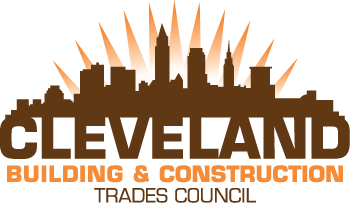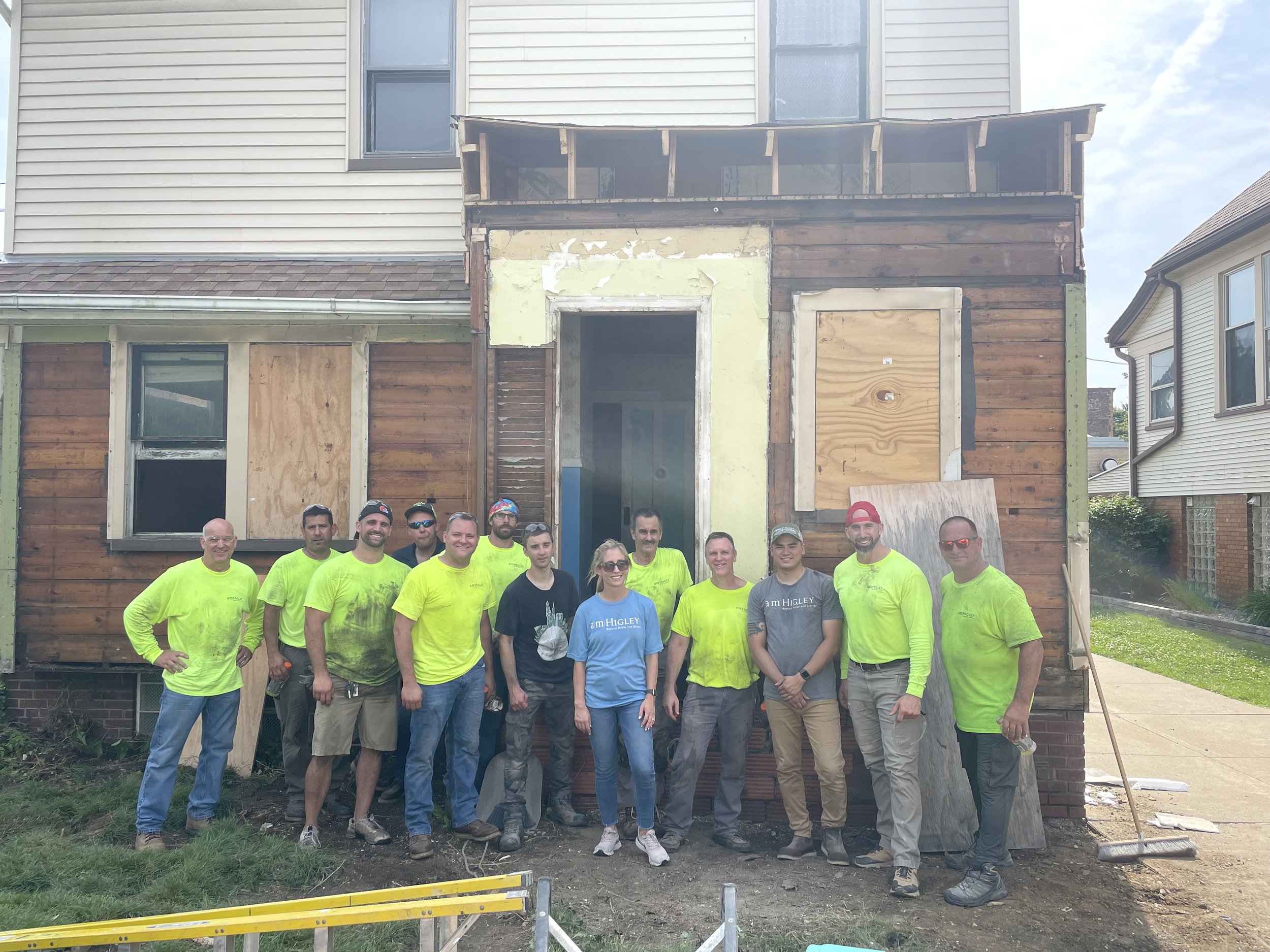Sisters Haven House
Affiliated members of the Cleveland Building and Construction Trades are volunteering their time and talent to help turn an abandoned home into a safe and supportive housing option for pregnant women.
Located on Cleveland’s west side, the home is owned by Sisters Haven, a nonprofit organization that provides safe housing and loving communities to pregnant women and new mothers. Once work is complete, up to seven pregnant women will live there until their child is approximately nine months old.
In addition to affiliated members donating their time to renovate the house, the CBCTC donated approximately $10,000 to the Sister Havens Foundation in support of the initiative.
Sisters Haven is holding numerous outreach events in the community, including baby showers, birthday parties and “Mommy-and-Me Storytime.”
In April, volunteers began clearing and gutting the home’s interior. Over the next fewmonths, Sisters Haven founders and CBCTC-affiliated members worked on zoning issues and obtaining the necessary permits.
The project received final approval in August for all the variances, which allowed the rehab to begin. Volunteers hope to complete construction in six months or less.
Members of IBEW Local 38 were one of the first crews to help. In late August, their crew stripped the electrical from the interior of the three-bedroom home and began to install new wiring.
Besides the renovation of the existing structure, volunteers plan to build an addition onto the home that will include four rooms and a kitchen. They will also turn the basement into a multifunctional computer/living room area and add more storage in each room.
Cleveland Building and Construction Trades Council Executive Secretary Dave Wondolowski has played a significant role in this project and envisions a final product that will be a testament to the skill and quality of work performed by union construction workers.
“The house has some character; it’s going to take a little bit of TLC, but it’s going to be beautiful when it’s done,” he said.
Sisters Haven Co-founder and Director of Mission Services and Development Julie Mallett expressed her appreciation to members of the building trades for generously donating their time and their dedication to helping the people living in their community.
“Dave [Wondolowski] has been so supportive and excited to participate in helping with safe and supportive housing for women and babies in Cleveland,” Mallet said. “The Cleveland Building Trades gave us a generous donation, and Dave has agreed to further discuss how the trades council can help with volunteering on this project.”
In addition to renovating the house, the CBCTC also wants to help Sister Haven residents, by introducing them to potential career opportunities in the trades.
Cleveland Tradeswomen Committee Chairwoman Doreen Cannon introduced Mallett to the Cleveland Builds program, which helps members of the underserved communities gain entrance into a registered building trades apprenticeship program.
Mallett and building trades members plan to educate shelter tenants about the different trades, the benefits of the Cleveland Builds program and how it can help them begin sustainable careers to support their new families.
“Part of our programming with the women in our house will be to help them find an education or career path, not just a job,” said Mallett. “Learning about and possibly becoming trained in the trades can be a wonderful opportunity for them.”
The CBCTC and Sisters Haven are working to find creative ways to help women with transportation and daycare services while they begin their careers in the trades, as these are common obstacles for working parents.
“What Sisters Haven provides for these women is invaluable,” Wondolowski said. “Get them trained and get them working; it’s a win for everybody.”
In the future, Sisters Haven hopes to open a “second-stage” house for continued support for new mothers.
“Sustainable, safe and affordable housing, as well as good career paths accompanied by a supportive community, is the best way out of generational poverty, and that’s our most important goal,” Mallett said.


